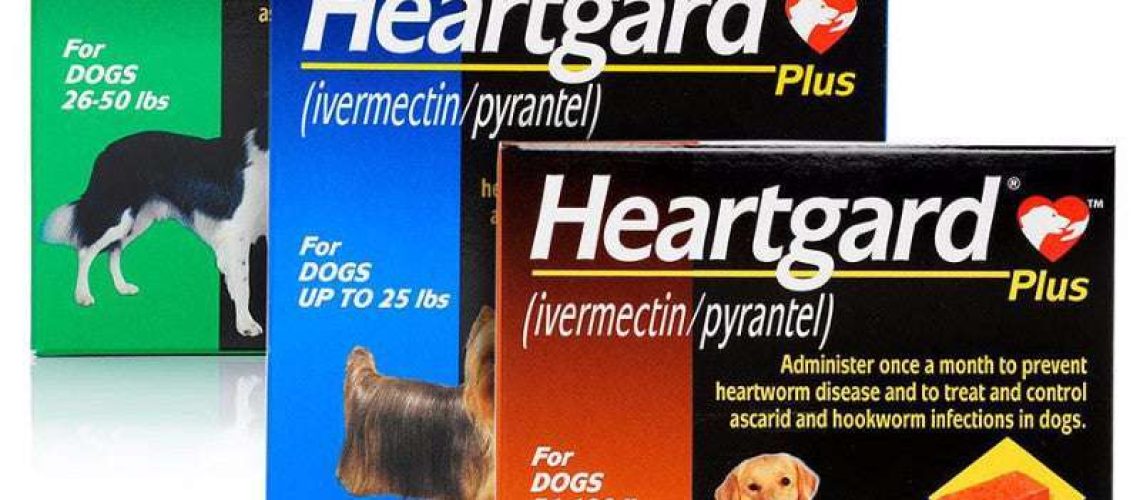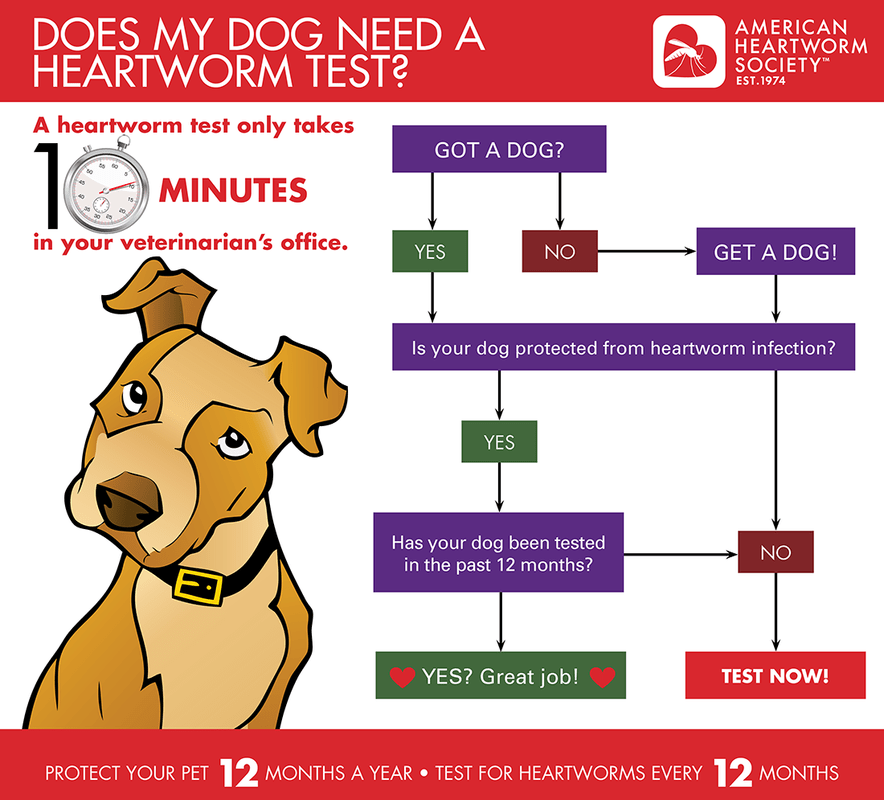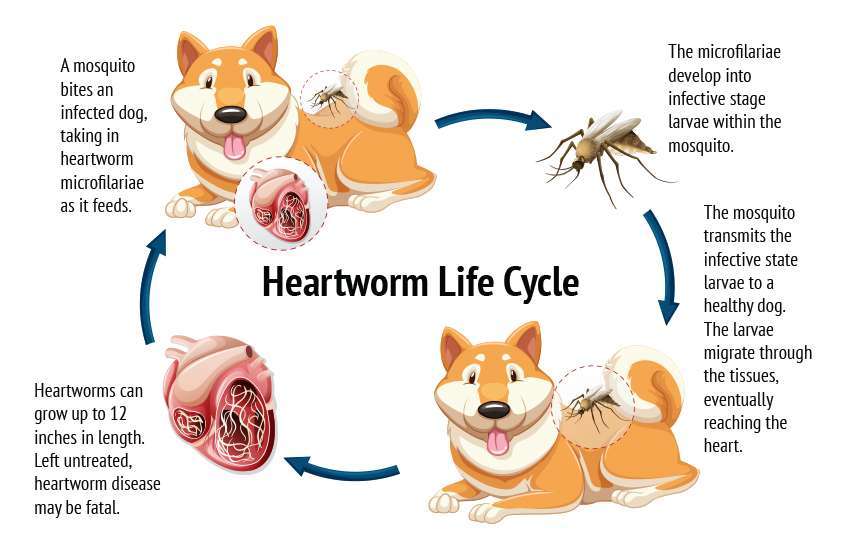Key Takeaways:
- Heartworm disease is a serious and potentially fatal condition in dogs, but it can be prevented with the use of medications.
- Preventive medications should be given to dogs regularly, as directed by a veterinarian, to ensure continuous protection against heartworm infection.
- There are different types of heartworm preventive medications available, including chewable tablets, topical treatments, and injections.
- It is important to choose a heartworm preventive medication that is appropriate for your dog's age, weight, and health condition.
- In addition to administering preventive medications, it is also crucial to limit your dog's exposure to mosquitoes, as they are the primary carriers of heartworm larvae.
Are you a proud owner of a furry friend? If so, then understanding the importance of heartworm prevention for dogs is essential to ensure their well-being. Heartworm disease can be life-threatening and cause irreversible damage to your beloved pet's heart and lungs. But don't worry, there are medications available that can effectively prevent this disease and keep your dog healthy and happy. In fact, did you know that over 1 million dogs in the United States are diagnosed with heartworm disease each year? By exploring the world of medications to prevent heartworm disease for dogs, you will not only gain valuable knowledge but also become empowered to protect your furry companion from this silent killer. So let's dive into this crucial topic and discover how you can safeguard your dog's health!
What is Heartworm Disease in Dogs and Why is it Important to Prevent?
Understanding Heartworm Disease
Heartworm disease is a serious illness that affects dogs. It is caused by tiny worms called heartworms that live in the blood vessels of the heart and lungs. These worms can grow up to a foot long and can cause damage to the organs, leading to severe health problems or even death.
The Importance of Prevention
Preventing heartworm disease is essential for the well-being of your dog. If left untreated, heartworms can multiply and cause blockages in the blood vessels, leading to heart failure or other complications. Treatment for heartworm disease can be costly and may also have risks associated with it.
Ideally, it is best to prevent heartworm infection rather than dealing with the consequences later on. By giving your dog regular heartworm prevention medications, you can protect them from this potentially deadly disease.
How Medications Help Prevent Heartworm Disease in Dogs
The Role of Medications
Heartworm prevention medications work by killing the immature worms before they have a chance to grow into adults. Most medications come in the form of chewable tablets or topical treatments that are easy to administer. These medications contain chemicals that are toxic to the developing worms but safe for your dog.
Killing Heartworm Larvae
Once you give your dog a heartworm prevention medication, it enters their bloodstream and spreads throughout their body. When a mosquito bites an infected dog, it ingests some of these medication chemicals along with the larvae present in their blood. The medication then kills these larvae before they can develop into adult worms inside the mosquito.
This prevents new infections from occurring and breaks the life cycle of heartworms. By consistently giving your dog these medications, you can effectively protect them from heartworm disease.
When to Start Giving Heartworm Prevention Medications to Dogs
The Importance of Timing
It is crucial to start giving your dog heartworm prevention medications at the right time. Puppies should begin their preventive treatment as early as 6-8 weeks of age. This is because it takes about 6 months for the larvae to mature into adult worms that can cause harm.
Consulting a Veterinarian
It is recommended to consult with a veterinarian before starting any heartworm prevention medication. They will be able to guide you on the appropriate timing and dosage based on your dog's age, weight, and overall health. Your veterinarian may also perform a blood test to ensure that your dog is not already infected with heartworms before starting preventive treatment.
Safety of Heartworm Prevention Medications for Different Dog Breeds
Safe for All Breeds
Heartworm prevention medications are generally safe for all dog breeds when used as directed. However, some breeds may be more sensitive to certain types of medications or have specific health conditions that require special consideration.
List of Dog Breeds:
- Labrador Retriever
- German Shepherd
- Bulldog
- Poodle
- Golden Retriever
- Beagle
- Rottweiler
- Yorkshire Terrier
- Boxer
- Dachshund
Veterinarian's Guidance
If you have a dog breed that is known to be more sensitive or has specific health concerns, it is essential to consult with your veterinarian. They can recommend the most appropriate heartworm prevention medication for your dog's needs and ensure their safety.
Frequency of Administering Heartworm Prevention Medications to Dogs
Regular Administration
Heartworm prevention medications should be given to dogs on a regular basis. Most medications are administered monthly, while some newer products offer protection for up to three months with a single dose.
Importance of Consistency
To ensure the effectiveness of these medications, it is crucial to give them consistently and on time. Missing doses or irregular administration can leave your dog vulnerable to heartworm infection. Set reminders or establish a routine to help you remember when it's time to give your dog their preventive treatment.
Potential Side Effects of Heartworm Prevention Medications for Dogs
Rare Side Effects
While heartworm prevention medications are generally safe, there can be some potential side effects in rare cases. These side effects may include vomiting, diarrhea, loss of appetite, or allergic reactions such as itching or swelling.
Taking Precautions
If you notice any unusual symptoms after giving your dog their medication, contact your veterinarian immediately. They will be able to assess the situation and provide guidance on whether any further action is necessary.
In conclusion, giving medications to prevent heartworm disease is important for keeping dogs healthy. These medications can protect dogs from getting infected with heartworms and help them live a happy and long life.
What medications prevent heartworm in dogs?
Petco offers four different heartworm medications for dogs, including Heartgard, Iverhart, Sentinel, and Tri-Heart. The active ingredient in Heartgard Plus, Iverhart Plus, and Tri-Heart Plus is Ivermectin, which not only kills the young heartworms but also helps to control intestinal worms.
Can I give my dog ivermectin to prevent heartworm?
Ivermectin is primarily used as a preventative treatment for heartworm in dogs and cats. However, it is also utilized off-label to treat various types of internal and external parasites.
Is there a natural alternative to heartworm prevention for dogs?
Although there are websites that advertise nosodes and herbal preventives as a way to prevent heartworms in pets, it's important to note that none of these products have been scientifically proven or approved by the FDA. Additionally, respected veterinarians who specialize in alternative therapies do not support the use of these products.
What is an alternative to Ivermectin for heartworm prevention?
Other options to prevent parasites besides ivermectin include milbemycin-based products such as Interceptor and Trifexis, which are effective against heartworms and other parasites. Furthermore, moxidectin-based preventatives like ProHeart 6 and ProHeart 12 offer extended protection with just one injection.
What months do dogs need heartworm pills?
It is important to give pets heartworm prevention medication throughout the year. The medication needs to be in their bloodstream at the proper levels for it to be effective. If mosquitoes are active early in the year, pets that have not received heartworm prevention medication during the winter are at risk of getting heartworms.
What is the safest heartworm treatment?
Melarsomine is the sole adulticide therapy for heartworm disease that has been approved by the FDA. The AHS protocol, which is recommended for its safety and effectiveness compared to other protocols, involves an initial injection followed by two injections spaced 24 hours apart after one month.

















